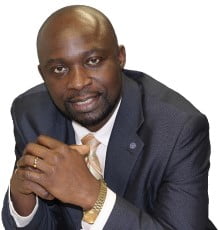Hon. Oliver Mbamara
With the emergence of a global world interconnected by technological advancements, social media, and the worldwide web, events and cultures of one society are now ever more available for consumption or scrutiny by individuals and entities in other societies, sometimes in real time.
Reactions to distant events and content could come from the well informed or the ignorant. Yet, the experiences of life in one society are far different from the experiences of watching or reading about them on social media or cable news outlets. Sadly, many do not note such differences.
This raises the issue of what we consume, how we consume it, and how such consumption affects our lives. The average person, including children, today pretty much have access to information (good or bad) that was not so available just a decade ago. Both censorship and verification of facts have now become ever so difficult to enforce as anyone can release content (good or bad, true or false) from their living room or from anywhere through their gadgets and it will reach a live audience, or go viral, before the impact of such content is assimilated or verified.
It is, therefore, of concern that some out there deliberately exploit the situation. Some now seek to redefine what is truth and what is a lie. Some seek to blot out or tarnish historical facts to suit their socio-economic, political, and religious goals and ambitions. There seems to be competition for selfish aggrandizement, glorification, vanity and material convenience, but less patience for selfless love, compassion, and regard for human life, conscience, and values.
To get the best for their children, some parents in continental Africa are eager to send their children abroad for education in an environment they consider better managed and conducive for the child’s education. Yet, some parents in diaspora are eager to send their children home to continental Africa where they believe there are still left some moral rudiments that could help mold a child into a well-rounded responsible and cultured person not excessively influenced by western culture. A kind of “academic education versus cultural upbringing” situation.
No doubt, the challenge is tough for parents. The question is what would parents do? Do they give up and surrender? Do they confront the situation and find ways to go around the shortcomings of modern technology and civilization to impact their children in the most positive, honorable, loving, and caring way possible? How do parents ensure they leave legacies they would be proud of? Such questions are pertinent because in the raising of a child, a parent invests in the child, and in investing in a child, a parent lays the foundation for not only the child’s future but in the parent’s own old age as well as what becomes of the legacy such parent leaves behind when his/her sojourn on earth is eventually done. This piece calls for reflection on these preceding questions. Addressing such questions candidly may help in the way forward.
Oliver O. Mbamara© April 24, 2020
Hon. Judge Oliver O. Mbamara is an administrative judge in the State of New York.
Official Website: www.OliverMbamara.com



This Post Has One Comment
Well written piece. Good questions and answers for parenthood.